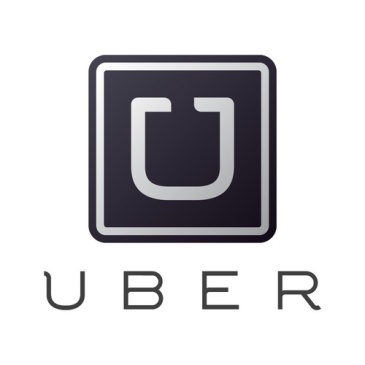Chicago Taxicab Companies, Passengers Sue Uber
By Chuck Sudo in News on Oct 10, 2012 1:30PM
 Uber, the so-called "disruptive car service" that made a splashy entry to Chicago last year and quickly became the darling of young techies and kids about town who wanted to roll around Chicago's streets in town cars without having to pay limousine prices, may have disrupted the market a bit too much for the tastes of some passengers and competing taxi companies.
Uber, the so-called "disruptive car service" that made a splashy entry to Chicago last year and quickly became the darling of young techies and kids about town who wanted to roll around Chicago's streets in town cars without having to pay limousine prices, may have disrupted the market a bit too much for the tastes of some passengers and competing taxi companies.
Two lawsuits were filed last week against Uber. One, filed on behalf of former Uber passengers, claims the company engaged in "false price advertising" and were deceptive about specific fees such as driver gratuities and service charges. The other lawsuit on behalf of Chicago taxi and limousine companies and claims Uber violated state and local laws aimed at protecting consumers, fair practices and public safety.
The latter lawsuit is the better read and reeks of more than sour grapes by taxi companies. Uber quickly expanded beyond town cars and contracted with taxi drivers to ferry passengers across Chicago. Chicago taxi and limo companies claim Uber doesn't have the safety measures in place to ensure the drivers they're hiring are licensed, insured, and working in safe vehicles, and is giving passengers the false impression the company is working with local taxi companies to staff their fleet. The companies claim this practice by Uber is a violation of local statutes limiting the number of cabbies allowed on Chicago's streets.
Both lawsuits claim a lack of transparency regarding the "gratuity" charged by Uber. This fee—a 20 percent markup of a standard fare—is split evenly between the driver and Uber. This is a violation of city legislation regulating taxi fares, according to the lawsuits.
Uber's Chicago general manager, Allen Penn, told Crain's Chicago Business the taxi and limo companies are crying over nothing and they're only following the same rules that govern Yellow Cab, Flash Cab and other local taxi companies. (As well as some of their drivers.)
“We spoke with the city, which asked us to obtain a dispatch license, which we have,” says Allen Penn, general manager of Uber's six-person Chicago office in River North. “The city makes the rules and enforces them, and we've done all those things we've been asked to do. This is a lawsuit by a competitor.”
As for the gratuity issue, Penn told Crain's they gotta get paid, too.
“It's disclosed we're going to tack on 20 percent on top of (the metered fare) to take care of the driver. Obviously, Uber has to take a cut. Uber communicates that to drivers. We pass that gratuity through to the driver. The driver pays Uber a marketing fee.“Customers don't have to take an Uber taxi. People continue to flock to Uber in droves. People are comfortable with the 20 percent.”
Here's another difference: Uber customers can use a GPS app to hail a cab. If you want a Yellow Cab to pick you up at your home and take you somewhere you call their number, wait until a disinterested dispatcher takes your information and tells you to hang up and wait by your phone for a callback with a cab order, then wait even longer for the cab to arrive.
Yeah, Penn may be underestimating it when he said people are comfortable with the 20 percent."
This isn't the first time Uber has had problems with taxi companies in other cities—they've run afoul of regulators in San Francisco, Washington, DC and other cities. But it's the first time they've been served with lawsuits. And isn't that truly The Chicago Way?